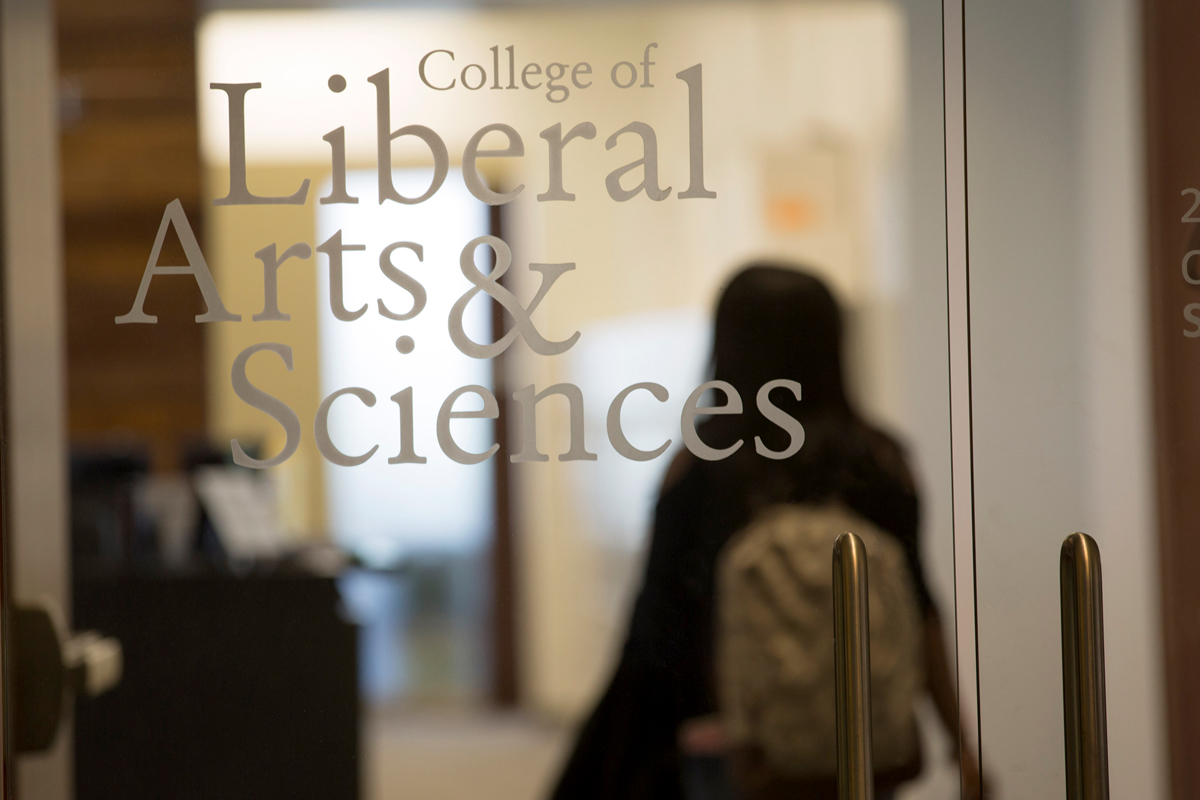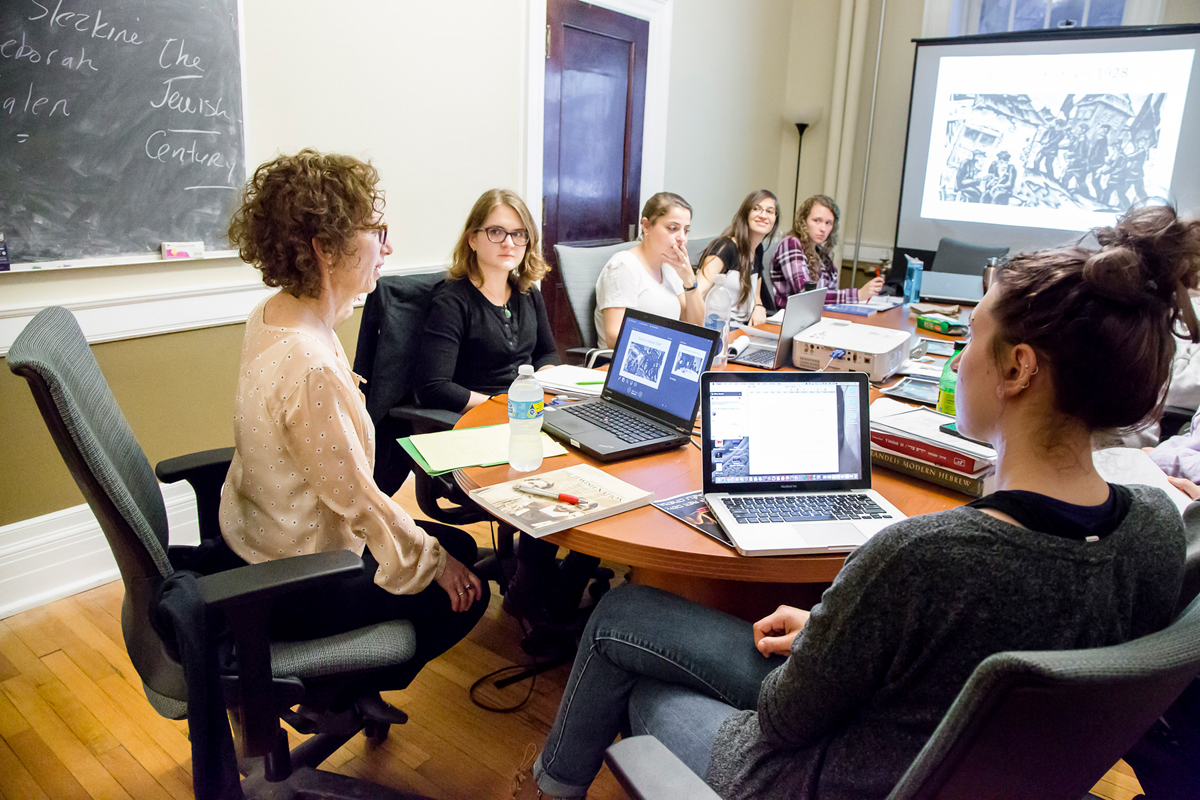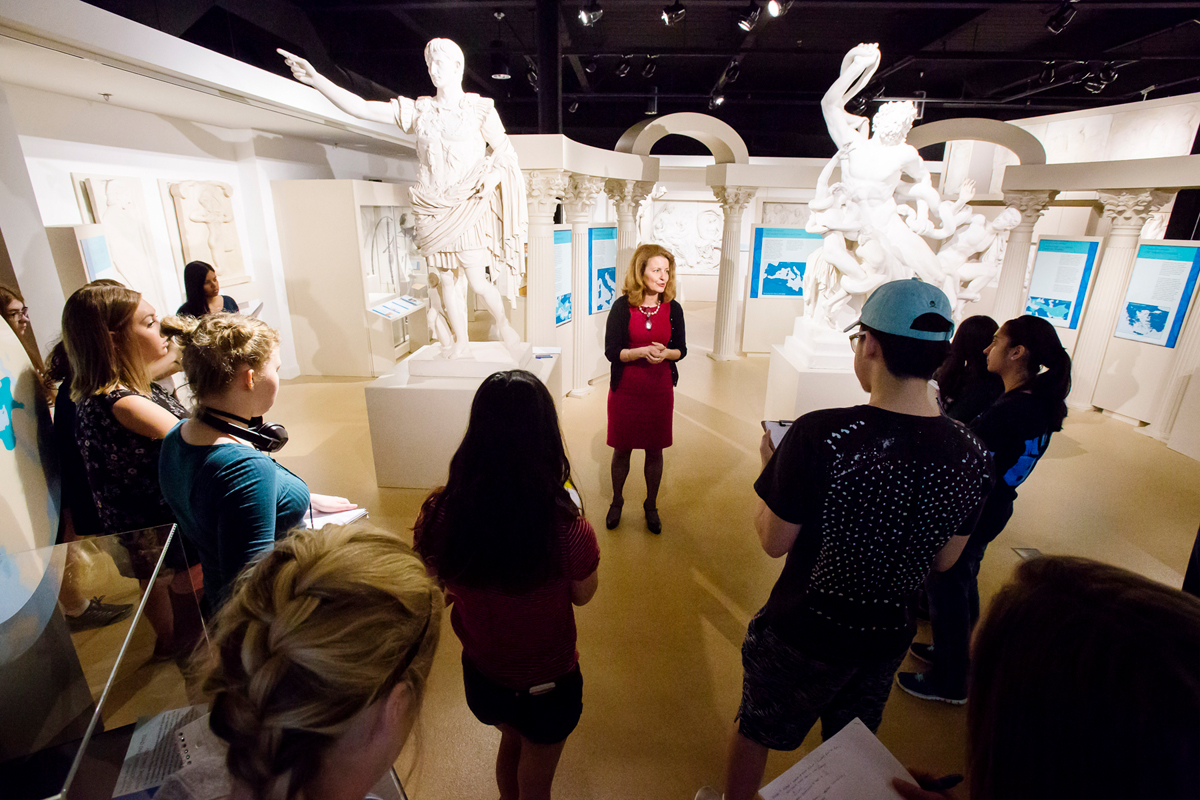Interdisciplinary Studies
Interdisciplinary studies is designed to acquaint students in a coherent manner with specific topics that cross disciplinary boundaries. Each concentration is supervised by faculty members whose own scholarship and educational interests have involved interdisciplinary teaching and research.
Although it is not possible to offer concentrations in all specialties or topics of humanistic study, students whose interests do not coincide with one of the specific concentrations are encouraged to consider developing their own programs through the Individual Plans of Study (IPS) major.
Two concentrations are offered through Interdisciplinary Studies.
Provides the student with knowledge of the Hebrew language, the opportunity to begin study of Yiddish, and a broad appreciation of Jewish religion, culture, and history.
Introduces students to medieval culture, provides them with a sense of periods and movements, names, ideas, and values, and consequently provides a synoptic view of the field. The required courses encourage the reading of medieval documents, the interpretation of art, and the study of Latin and the medieval vernacular languages of the period.
Jewish Studies:
- HEBR 201 - Elementary Modern Hebrew I
- HEBR 202 - Elementary Modern Hebrew II
- YDSH 101- Beginning Yiddish I
Medieval Civilization
- MDVL 201 - Medieval Literature and Culture
Students should consult with an academic advisor regarding course selection prior to the advanced registration period.
Interdisciplinary programs of study can help prepare students for many different paths.
- Critical analysis skills: the ability to analyze a situation and come up with creative and practical solutions.
- Curiosity and inquisitiveness: the desire to learn more and to continue learning, to examine reasons beneath issues, and to come to understand them as part of a continual, life-long, education process.
- Effective writing skills: the ability to successfully and precisely communicate one's ideas in text.
- Interdisciplinary thinking and training: the ability to think about a problem in a multitude of ways, to analyze it using multiple tools, and to provide solutions which draw from different traditions of thought.
- Research skills: the ability to understand past practices and policies and to trace the roots of any issue, to find new information which bears on that issue, and to incorporate that information into one's analysis of an issue.
- Advertising Copywriter
- Anthropologist
- Archeologist
- Archivist
- Attorney
- Business Manager
- Columnist/Reporter
- Community Relations Director
- Congressional Aide
- Consultant
- Consumer Advocate
- Copy Writer
- Counselor
- Criminologist
- Cultural Affairs Officer
- Customer Relations Rep
- Customs/Immigration Officer
- Demographer
- Economist
- Editor
- Editor/Writer
- FBI/CIA Agent
- Foreign News Correspondent
- Foreign Service Officer
- Genealogist
- Government Agency Administrator
- Government Official
- Historian
- Historic Preservation Spec
- Historic Site Administrator
- Historical Society Staff
- Human Resources Specialist
- Insurance Agent / Broker
- Intelligence Analyst
- International Consultant
- International Relations Specialist
- International Trade Specialist
- Journalist
- Lawyer
- Lecturer
- Legal Assistant / Paralegal
- Librarian
- Lobbyist
- Market Research Analyst
- Media Consultant
- Museum Curator
- Non-profit Administrator
- Peace Corps/VISTA Worker
- Political Scientist
- Politician
- Public Administrator
- Public Information Officer
- Public Policy Specialist
- Public Relations Specialist
- Public Service Official
- Research Assistant
- Sociologist
- Technical Writer
- Tour Organizer/Guide
- Travel Agent
- Urban Administrator
- Writer / Author
Some careers may require education beyond an undergraduate degree.
- Participating in undergraduate research
- Participating in the activities of the thriving Medieval Studies Program, which organizes conferences, lecture and film series, performances and plays.
- Applying for a study abroad experience
- Utilizing resources of The Career Center
- Joining a Registered Student Organization (RSO) related to this major, such as:
- Chabad Jewish Student Association: provides the university community with an opportunity to foster awareness of Jewish cultural and spiritual heritage, values and traditions; to educate students in Jewish teachings and thoughts; to facilitate observance of rituals and customs.
There are several professional organizations dedicated to Interdisciplinary Studies. Their websites might be able to provide a glimpse in the world of Interdisciplinary Studies. These organizations include Jewish Communal Service Association and Medieval Academy of America.


